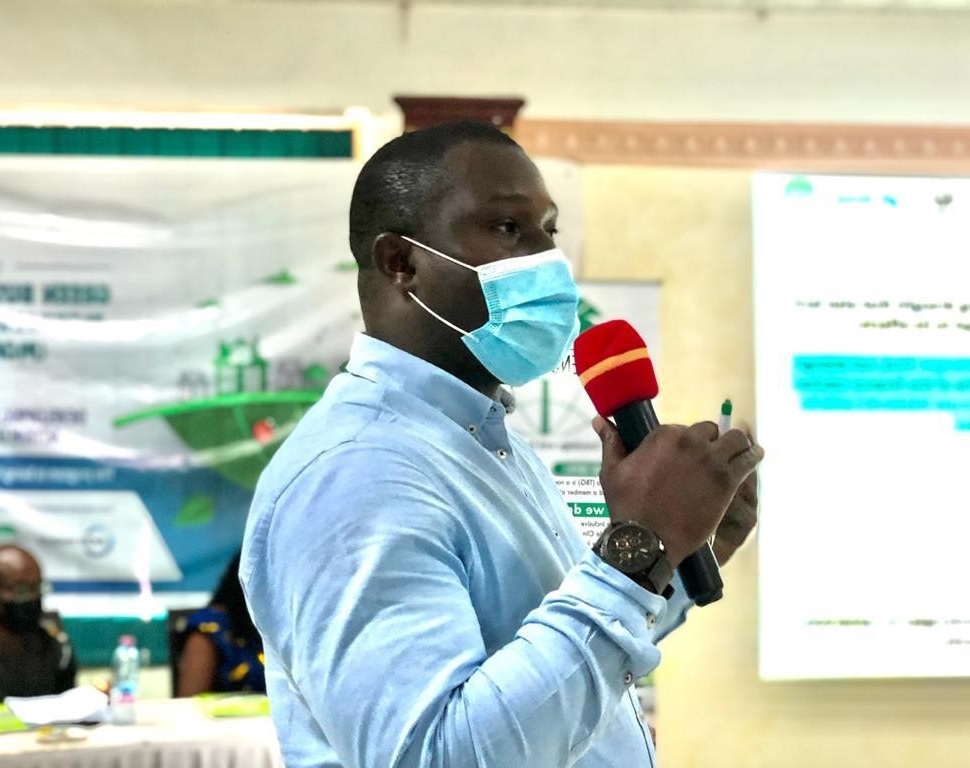[ad_1]
A Rocha Ghana is proposing the use of a traceable green bags in the charcoal production chain to “facilitate the control of the activity and allow traceability of the product.”
This forms part of its four green charcoal approach which suggests a “robust regulation, restorative capacity and function, revenue oriented and resilience for charcoal producing hotspots”.

Presenting on the ‘Recommendations of Charcoal Assurance System’ at an IUCN’s policy dialogue on ‘Forest landscape restoration and sustainable wood energy value chain in Ghana’, A Rocha Ghana’s Deputy National Director, Daryl Bosu says that “only a person with a granted permit will be granted a green bag which will have a tag number that represents the ID that identified the producers with their community and district information”.
He explained that the initiative “will control the revenue generated by charcoal activity at the district level and will allocate a percentage to a restoration fund.”
In a call for “a national regulatory framework that combines participatory self-checks by producer associations, complemented by a national compliance regime for an assurance system is imperative to achieving sustainability within the sector”, Mr Bosu said “it must be sufficiently decentralized to ensure inclusion of all relevant stakeholders at local and national level.”
The Ghana Statistical Service, in its 2019 report, stated that charcoal constitutes a crucial component of the energy mix, with approximately 37% of households relying on the product as their main cooking energy source.
https://www.youtube.com/watch?v=/wgppMO_CQ8g
Mr Bosu further cautioned that “sustainable charcoal production must not compromise the quality of ecosystems, conserve ecosystem services and protect biodiversity in the landscape”.
Additionally, the “training of registered groups in use of appropriate technology and improved kilns in charcoal production” will guide in protecting biodiversity and address deforestation.
A World Bank (2022) analysis of wood fuels sector in Ghana stated that charcoal is an important cash contributor to rural livelihoods, and this calls for urgent transition to sustainable charcoal which must focus on solutions that prioritize livelihoods, protect stakes, restoration, and protect biodiversity.
To effectively track the process, there must be “district level guidelines on species, locations and site management plans for charcoal production sites and relevant authorities need to carry out inspections at the premises for charcoal production at the community level regularly” to ensure compliance, he added.
[ad_2]
Source link


